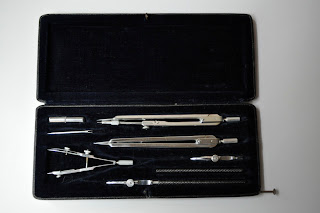i – Waiting for the Tram, 1960
Waiting for the tram and the old rust-coloured asphalt cracked, open mouths perpendicular to the track. Waiting for the tram to go to the Bay and out of the corner of your eye a woman with a boy and a girl, dark brown eyes, dark skin. Your mother doesn't say anything, except at other times. You look away. You don't look at your mother. The others are badly dressed, from a Mission. (You've heard, you haven't heard.) The woman is a good woman (better than you) doing good works. (You're selfish.)
You don't look at them again (except they're next to you. Your skin looks at them, your skin shouts them to your mind, their colour.) The dirt mouths are on the ground, jags of dark.
Because of that woman (better than you) (better than your mother) you can go to the beach and your nature (shortcomings, failures) won't be mentioned (during the tramride) this time.
You're lucky. We're all lucky (said at other times). Lucky means your father's job, our house. Lucky means (not a servant) (not raped) (a long way away) (money).
(you've heard, you haven't heard)
(money)
(not a servant) (a long way away)
(next to you) (during the tramride)
(their colour)
(your skin looks)
(shortcomings, failures) (said at other times)
(the colour of their skin)
(money)
ii – My father and –
The Current Affairs Bulletin was partially funded by the CIA. My father used to subscribe to that… I can still see it on his night-table –
My father, the good-natured, the secret sympathizer with women, children, animals, birds, rivers; the hard-working, the honest, the lacker of guile; the man whose father abandoned him; who'd been a clerk and an accountant; who always did his best, who gardened and painted and roofed; who knew the names of birds and their calls, who buried my cat when she died –
Who'd been a drover and seen the hard light of the gibber plain and the dependence of cattle –
He had no idea where the funding for his magazine – the Catholic magazine he relied on for geopolitical information, for the shape of the world he lived in, for the truth, because he believed in truth and thought the thinkers of the Church would give it to him – was coming from.
The Current Affairs Bulletin always on his night-stand. CIA propaganda always on his night-stand.
Such an intimate assault.
Frances Stonor Connor's Cultural Cold War: The CIA and the World of Arts and Letters mentions Australia very briefly.
We are such small beer, to them.
iii – how do i cut
how do i cut
down
open
the skin
the fat the bone the strings
let them out
the lies
the shadows
the lies
the long chains, the strung-together
chains –
how
open
the marrow
the shadow
open
irrigating canals
light on blood like light on water
how do i cut
v-shaped culverts
cut
the hypocrisy, cronyism, the nest-feathering parasitism,
the sanctimonious brazen mealy-mouthed thieving,
the murderous, blame-shifting, self-serving
lies from everywhere
from
my
veins?
iv – Untitled
What do you want to wear?
– Nothing. Nothing.
Where do you want to go?
– Into the rain. Nowhere.
v – Stroking the Cat
Stroking the cat
on the stairs to the garden.
The stairs go to sleep.
Nothing matters:
The dirt is here
the air is here
the leaves are here
The cat is here,
the hand.
The world is air.
The world drifts
the stairs go to sleep.
Nothing matters.
The air
is asleep,
the world
is asleep,
is warm
is fur
is
content.




